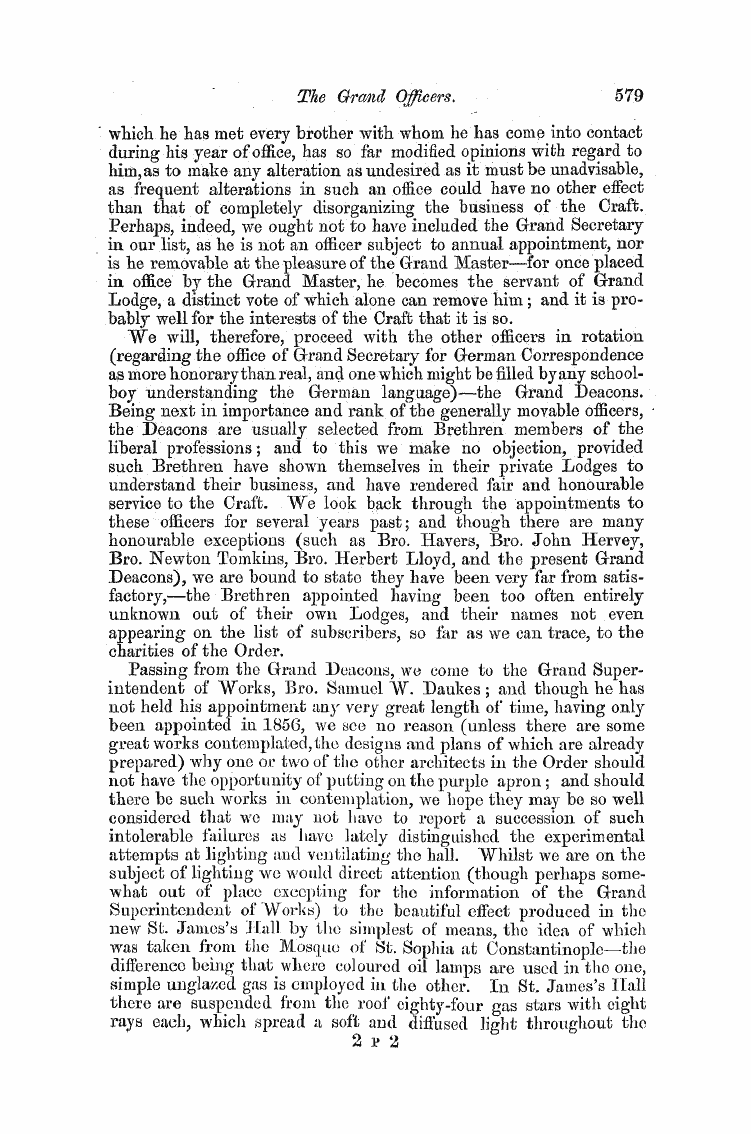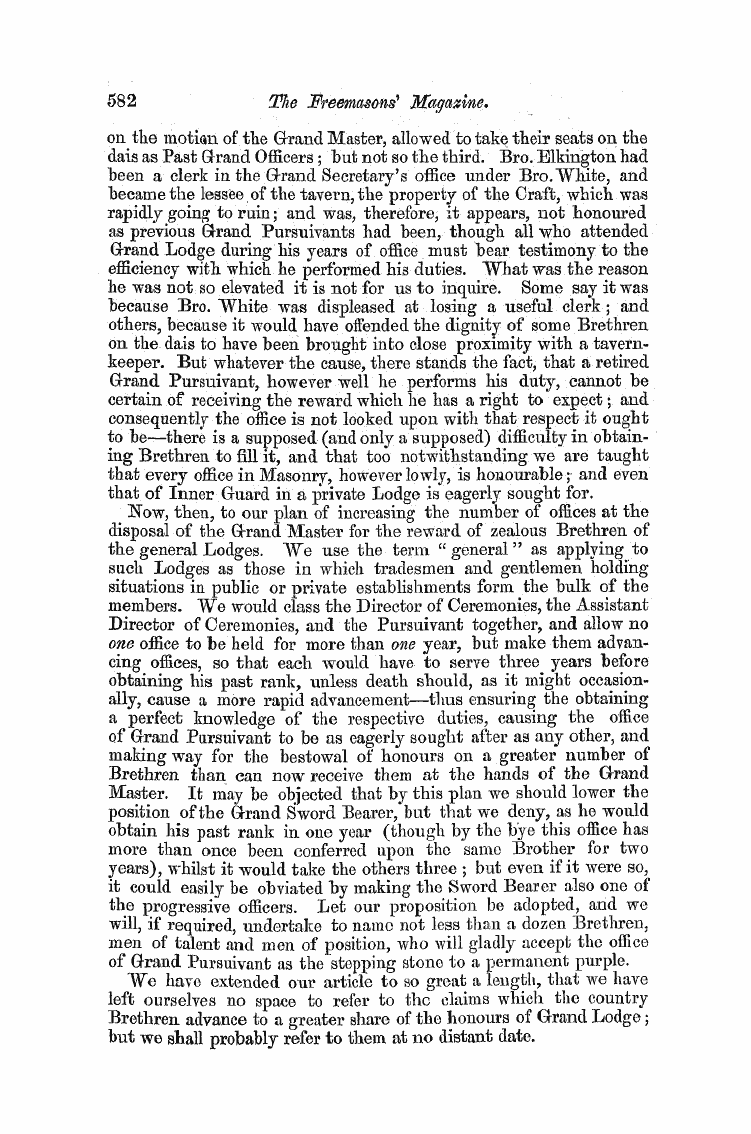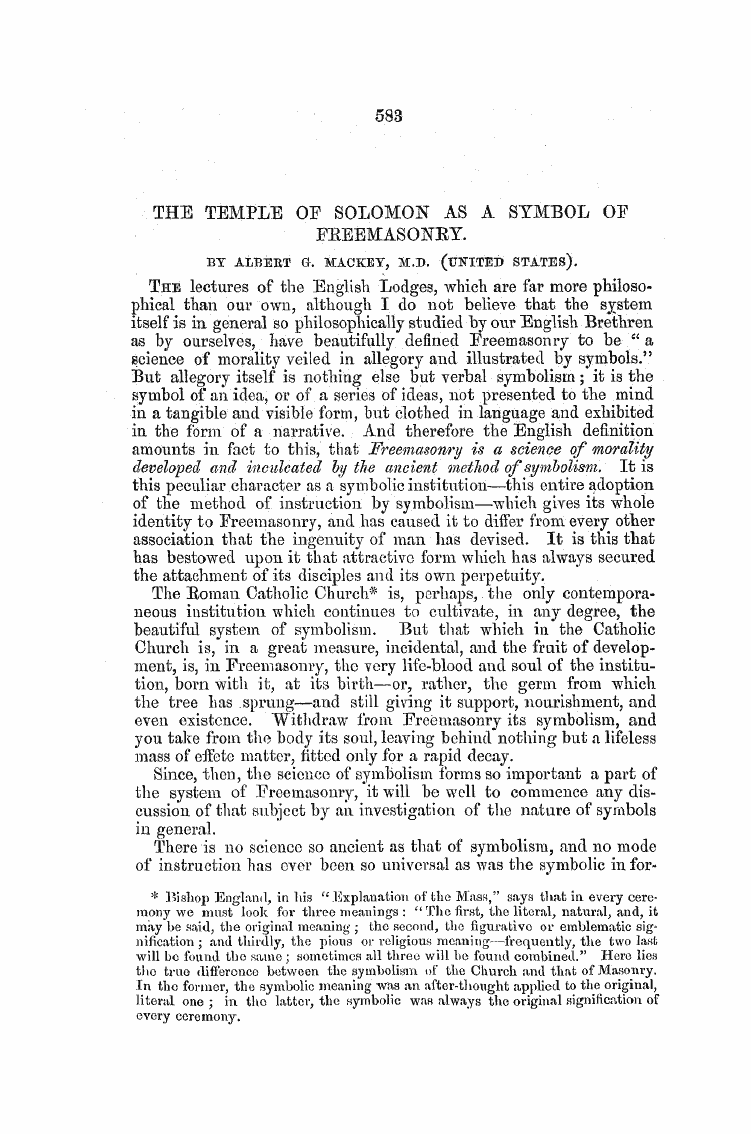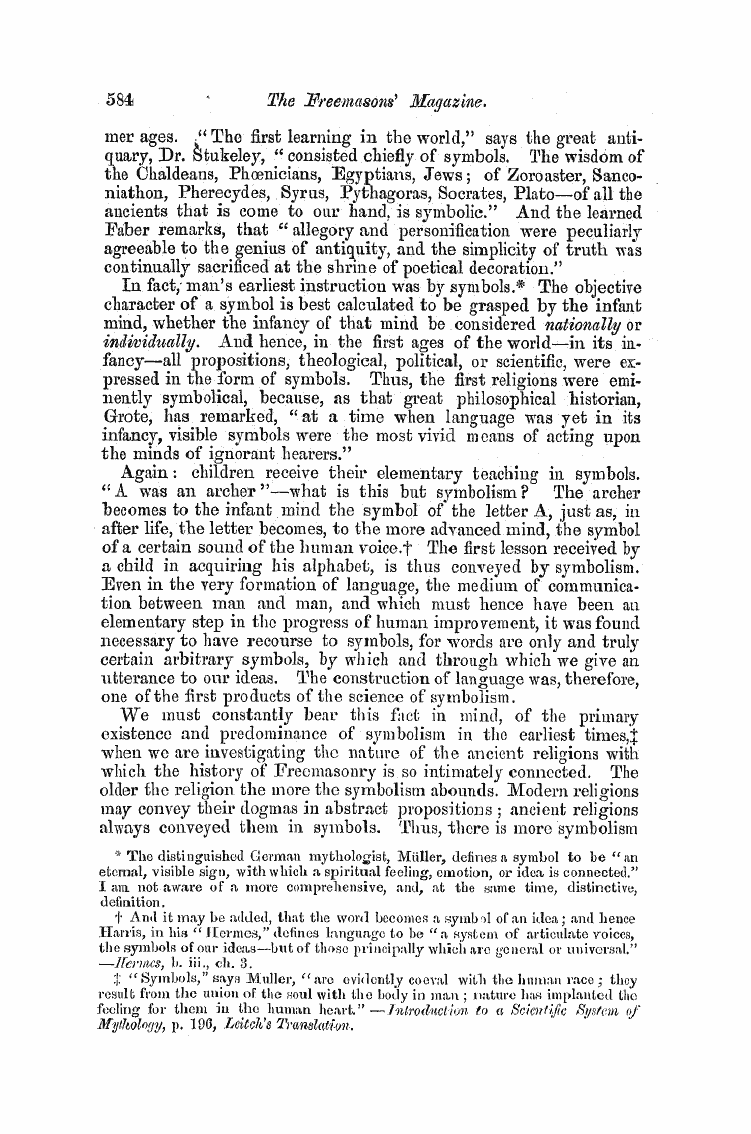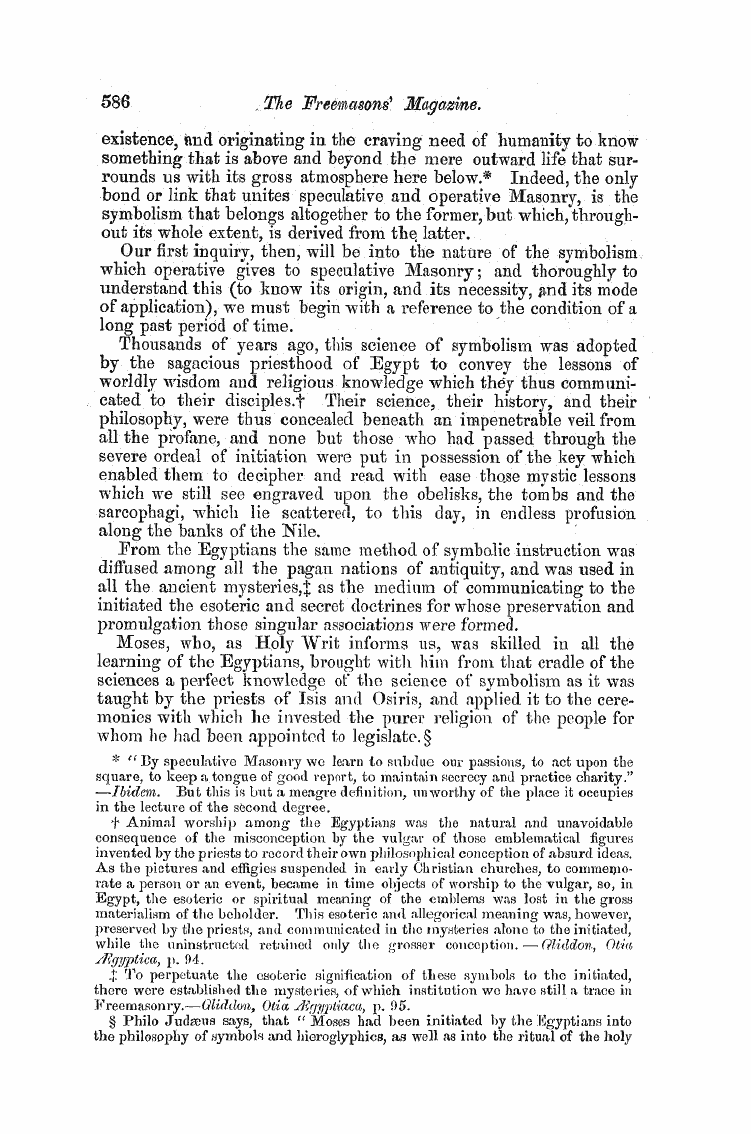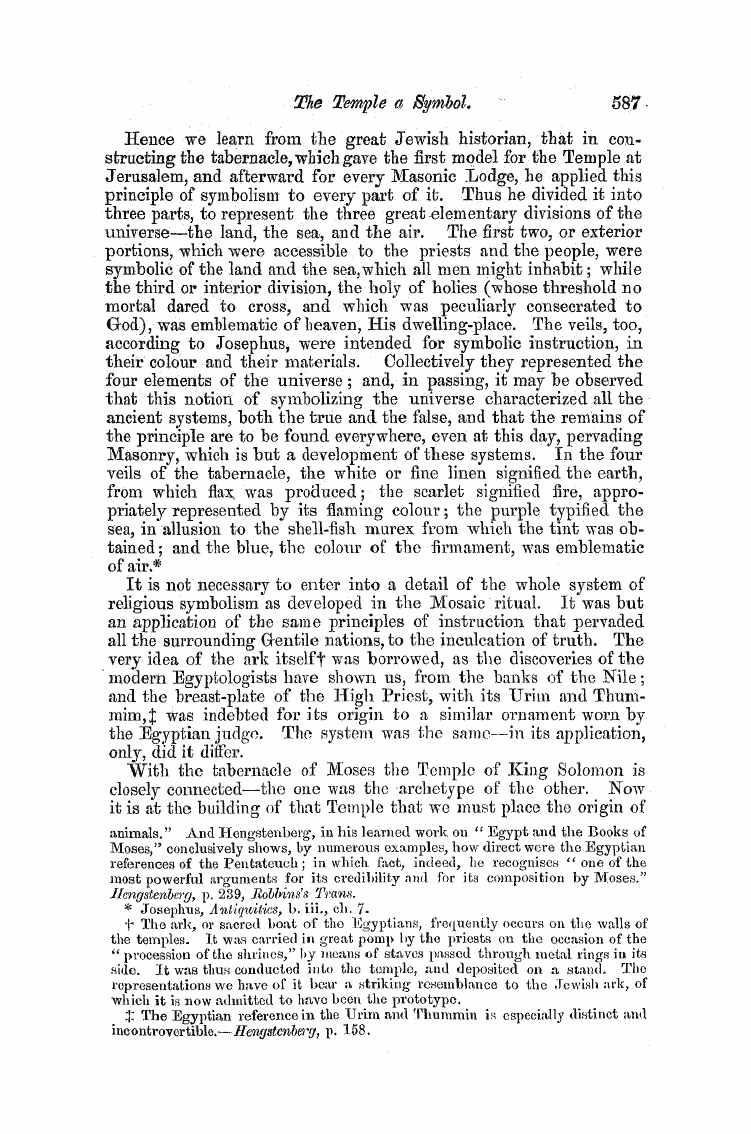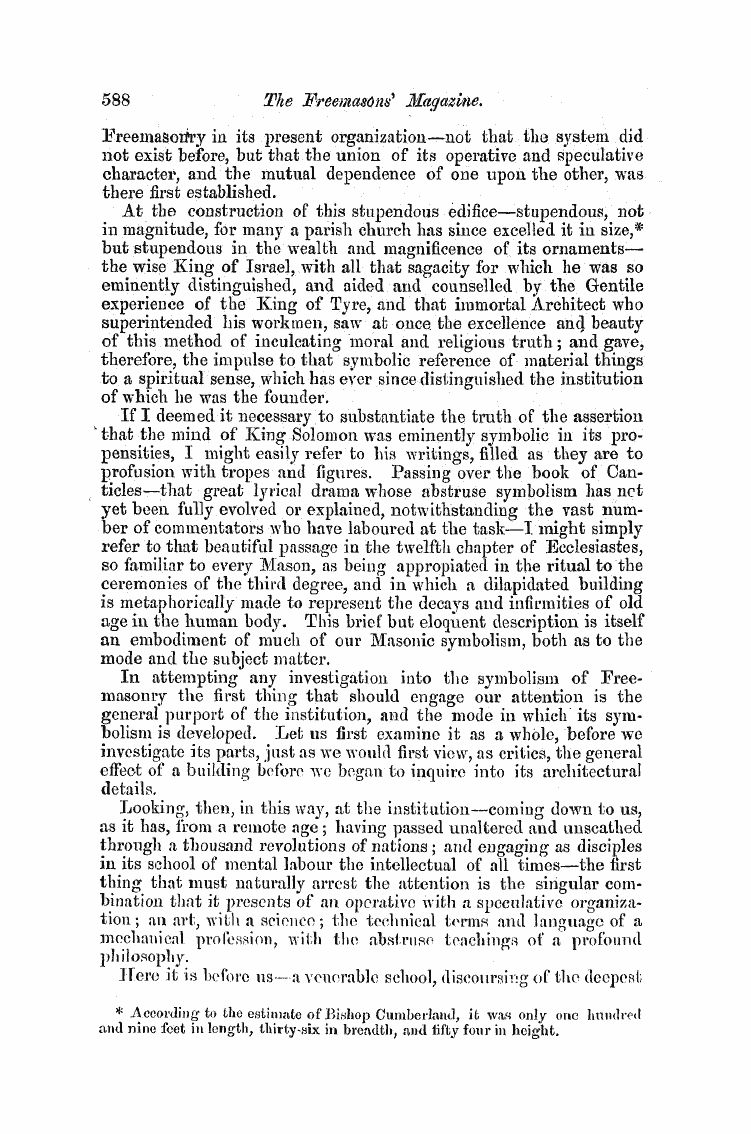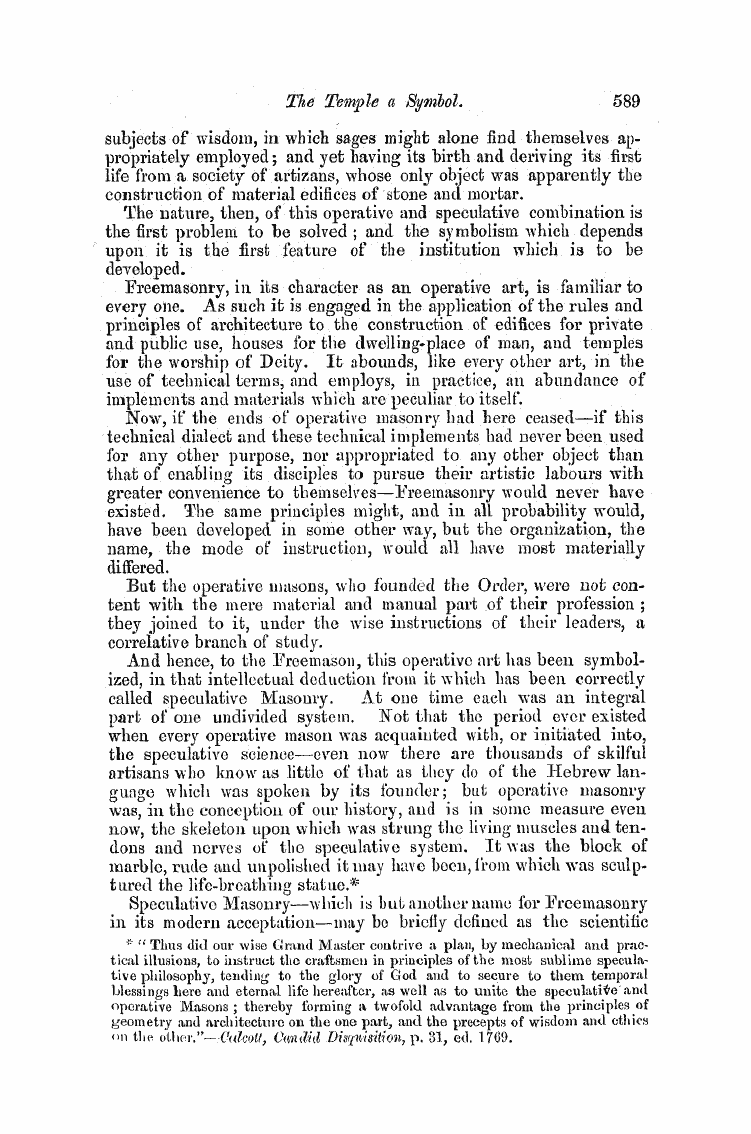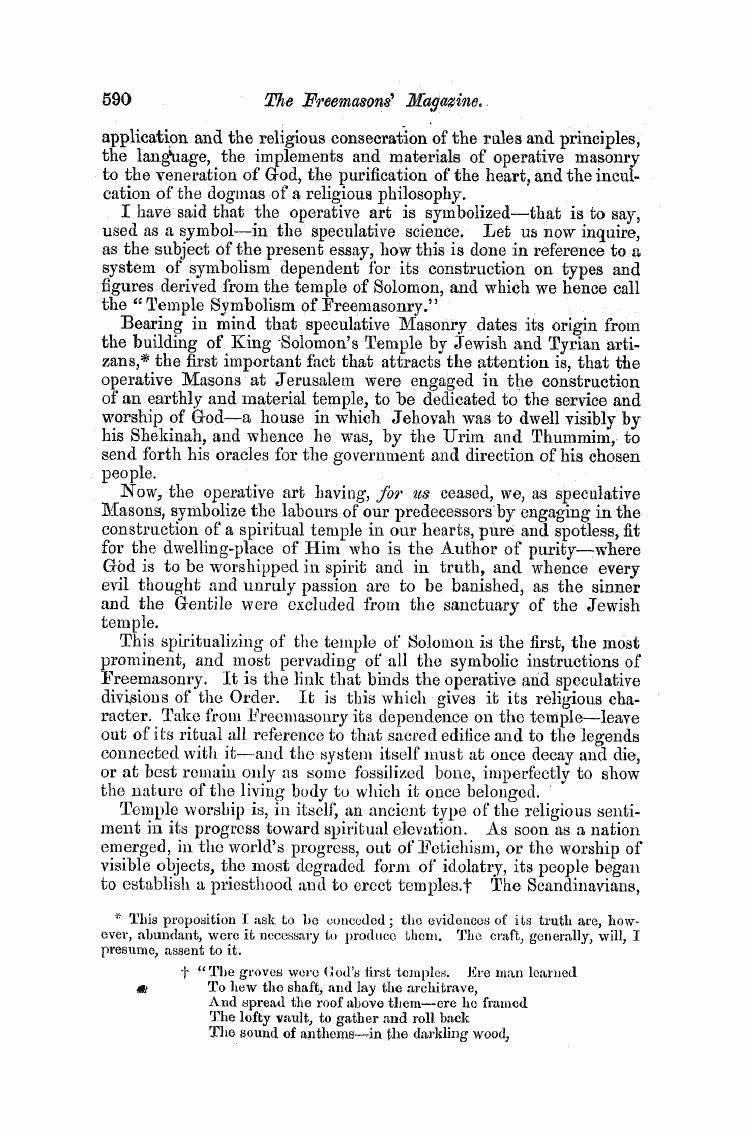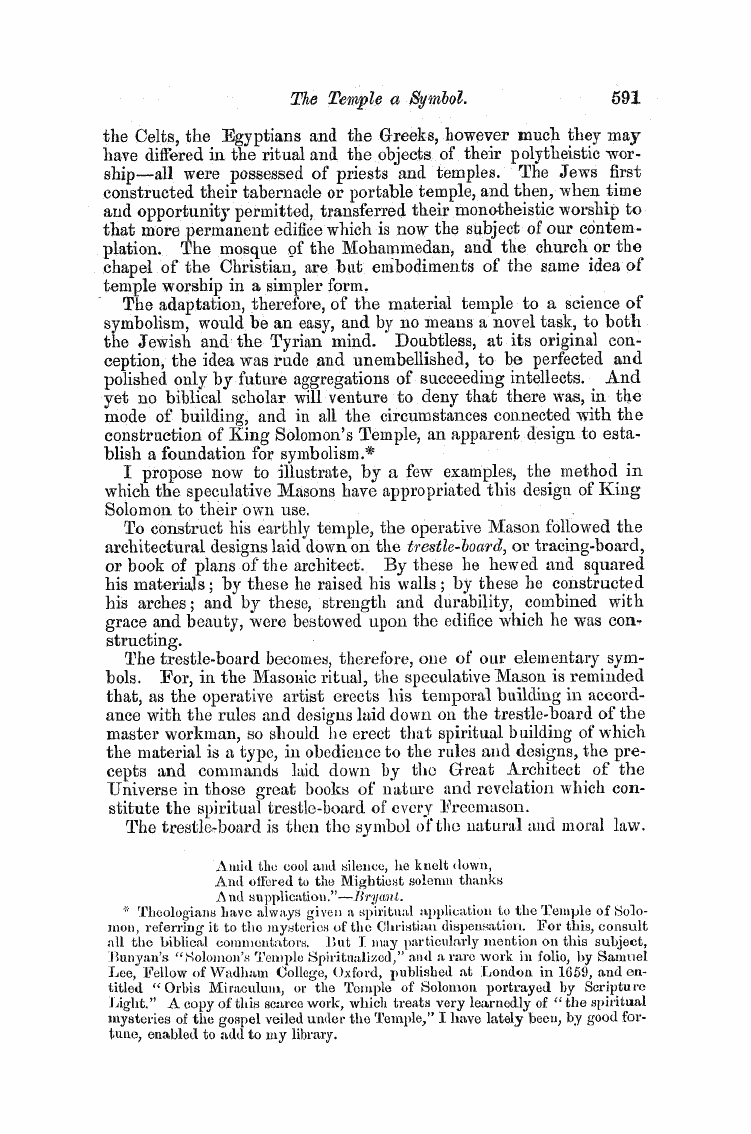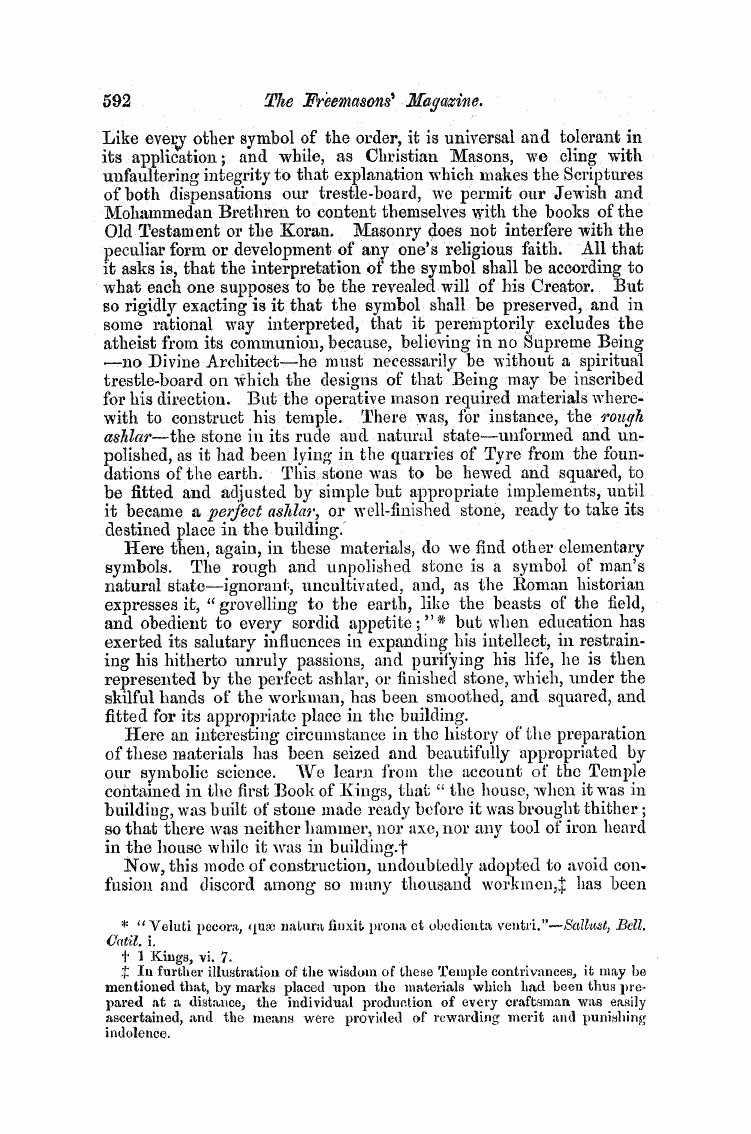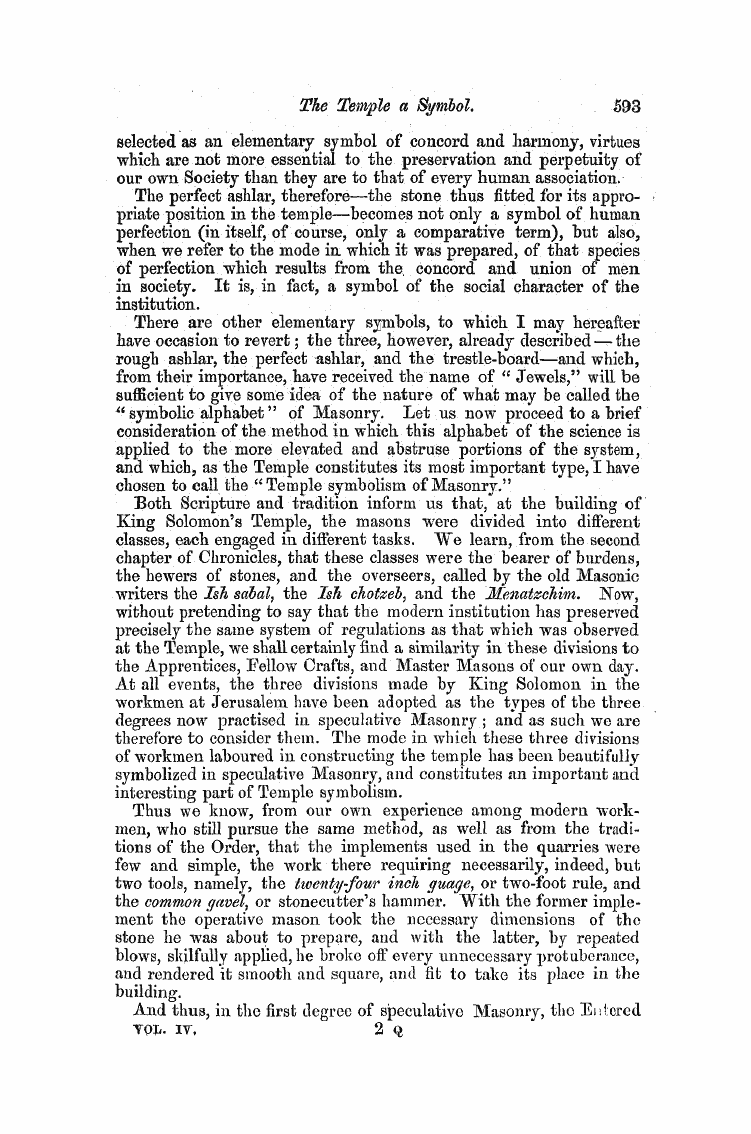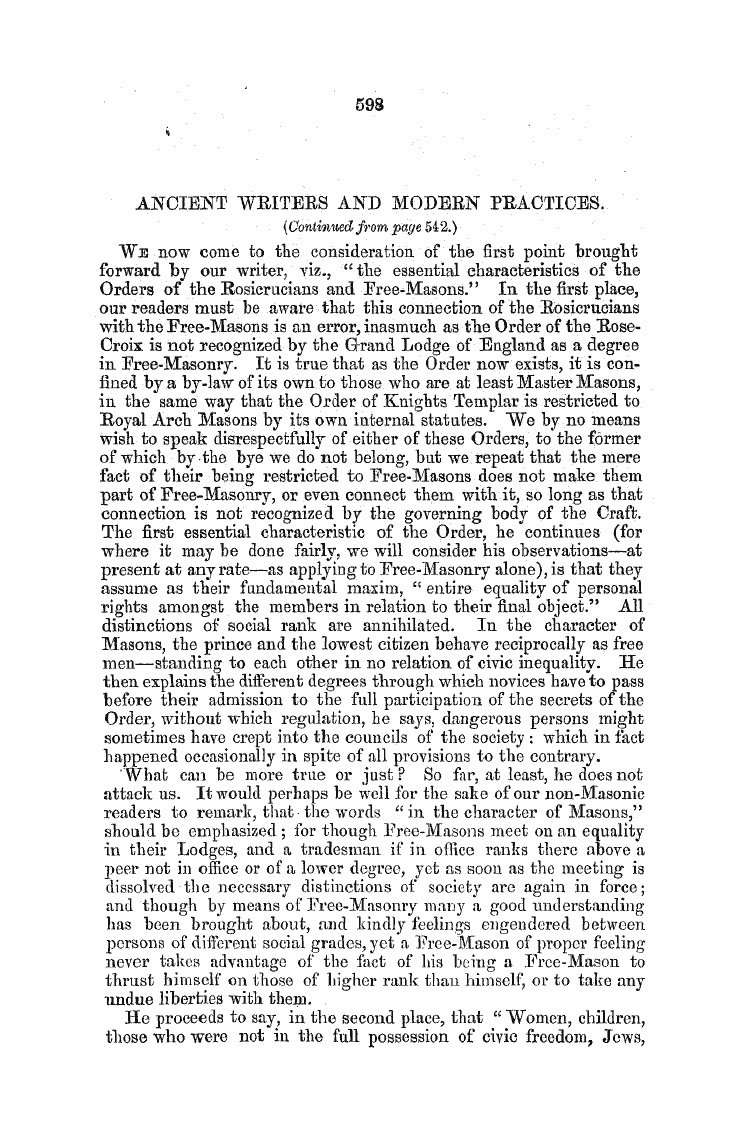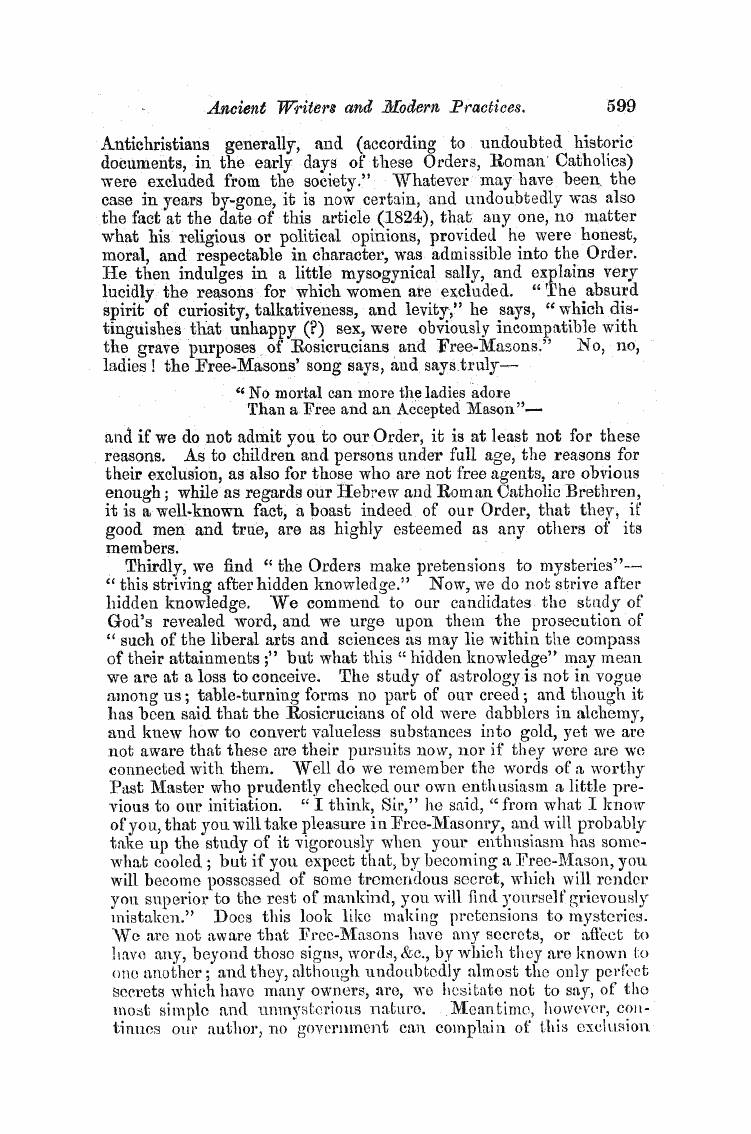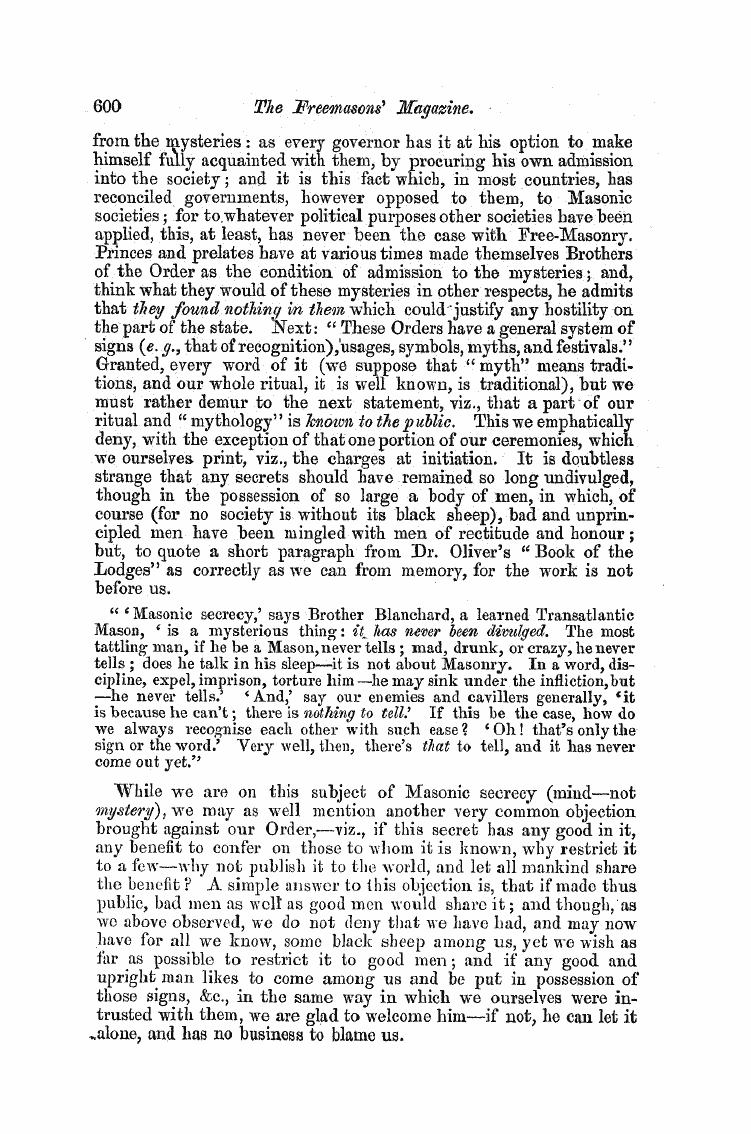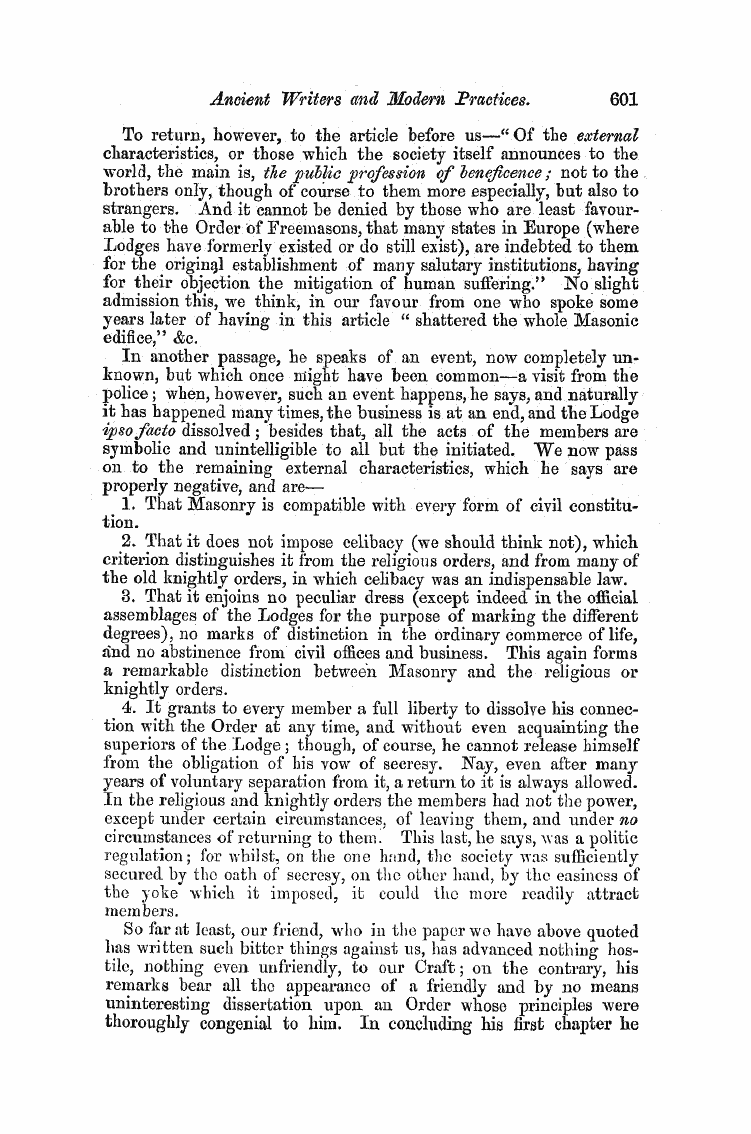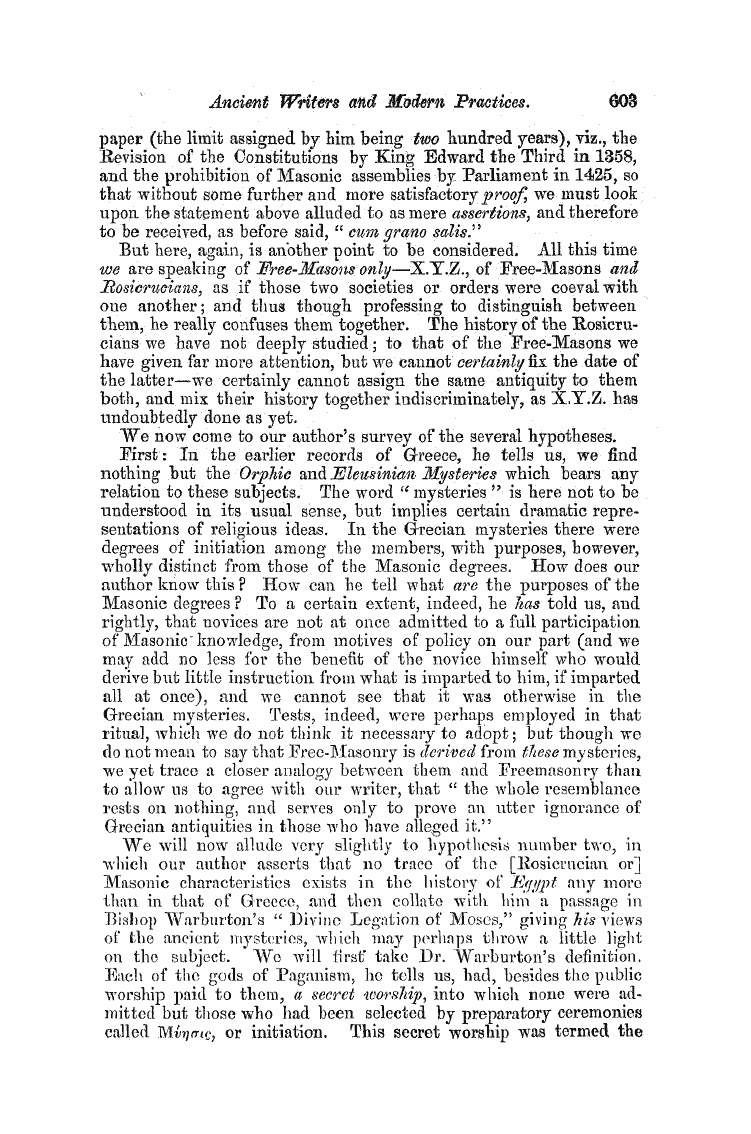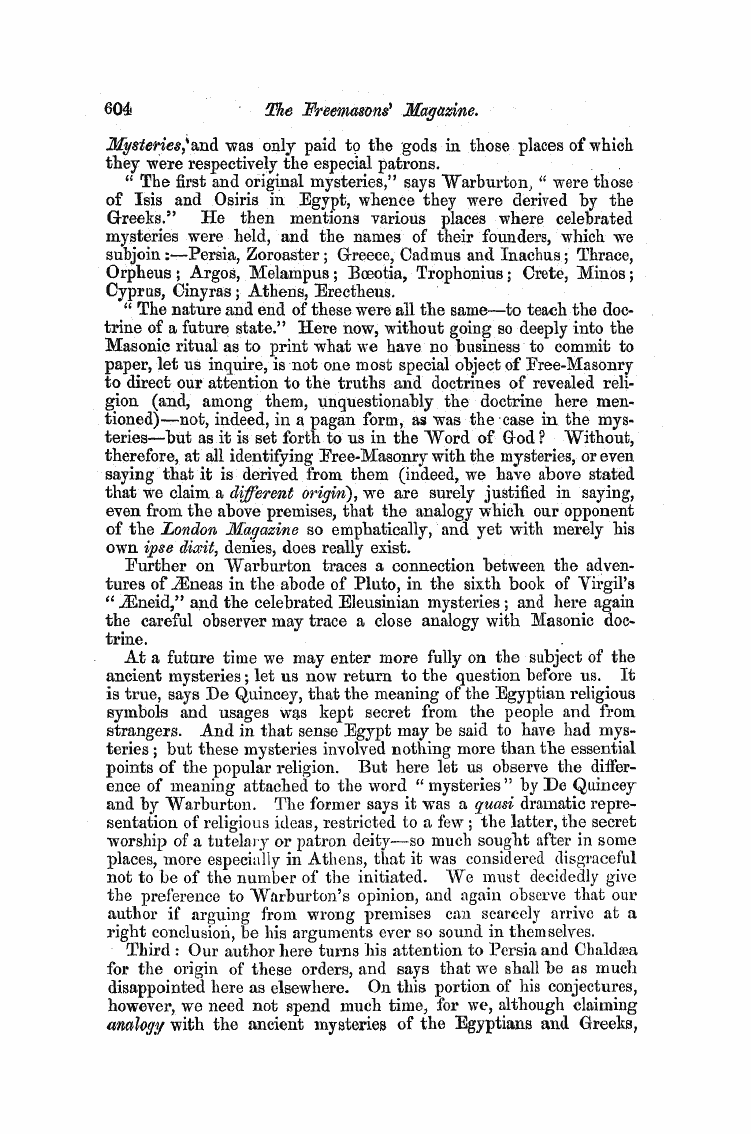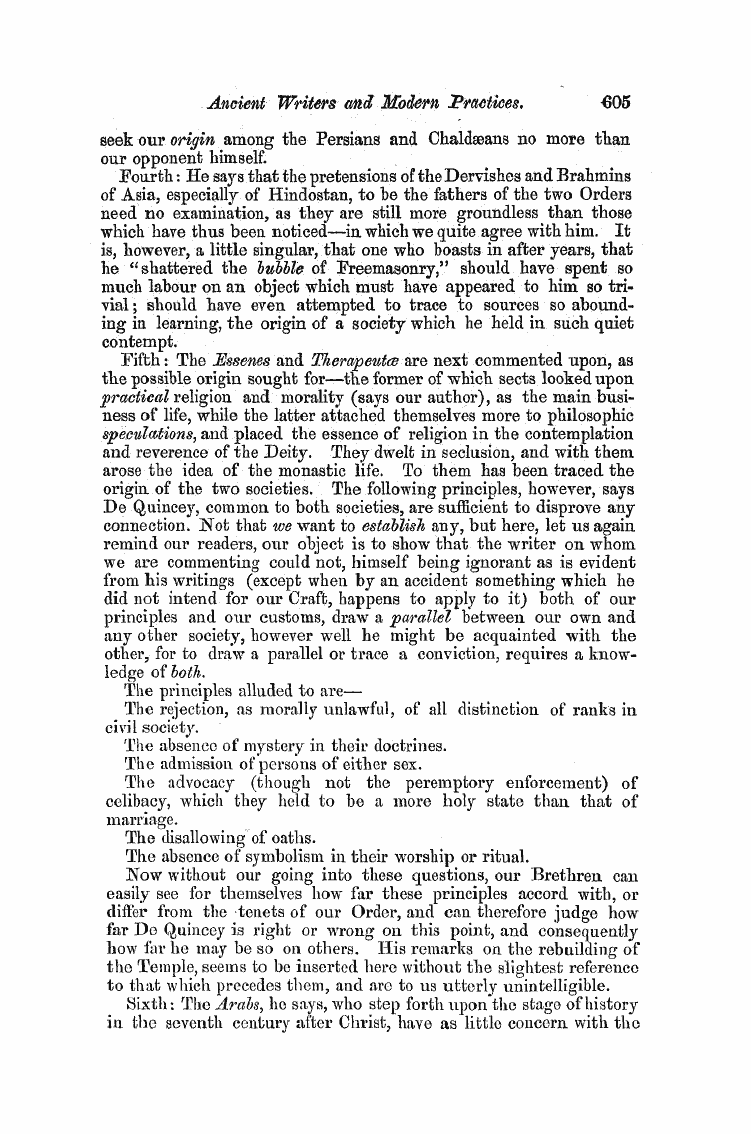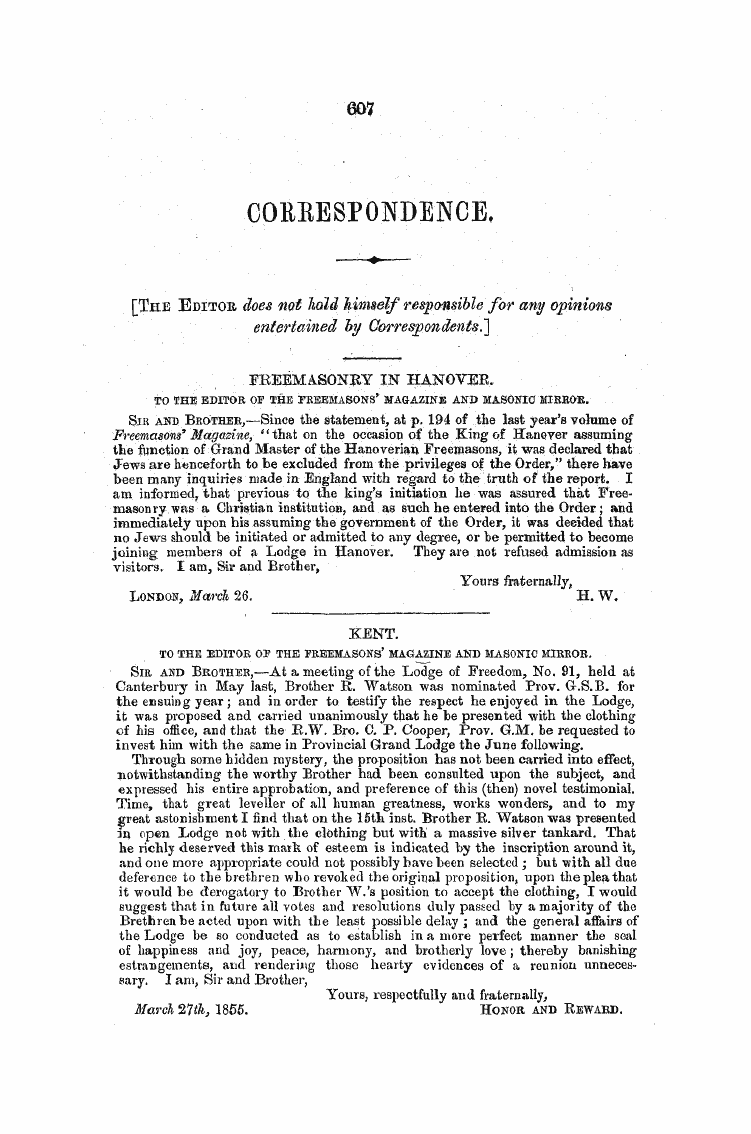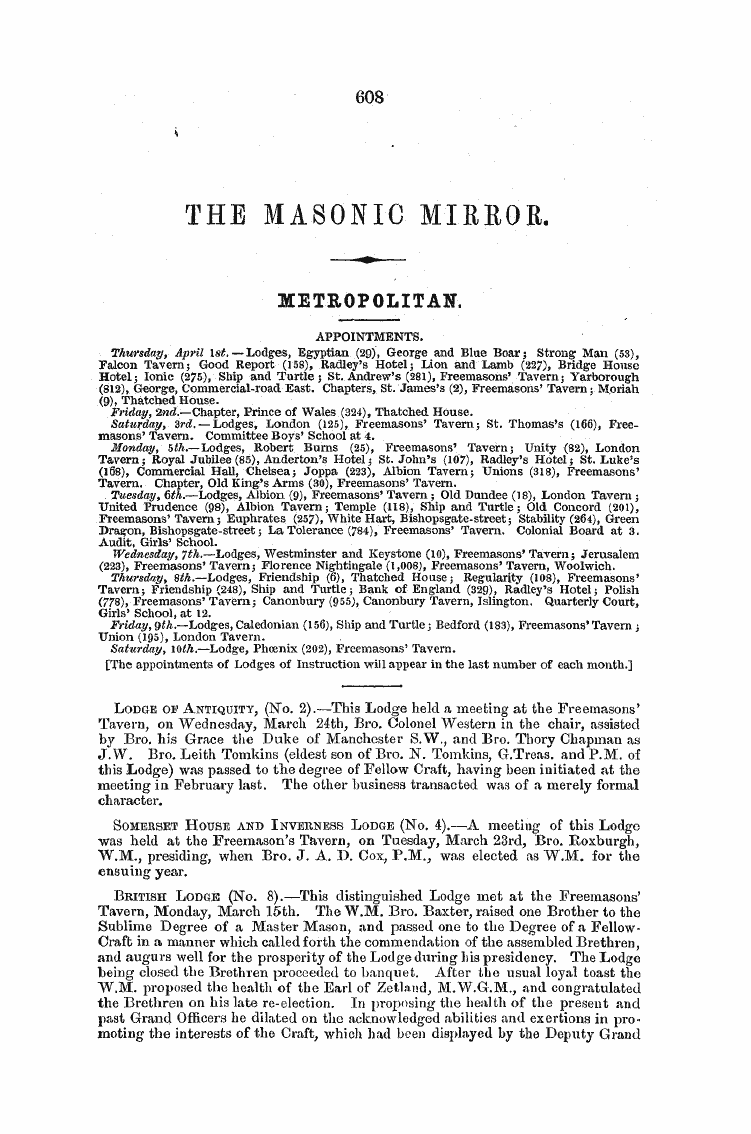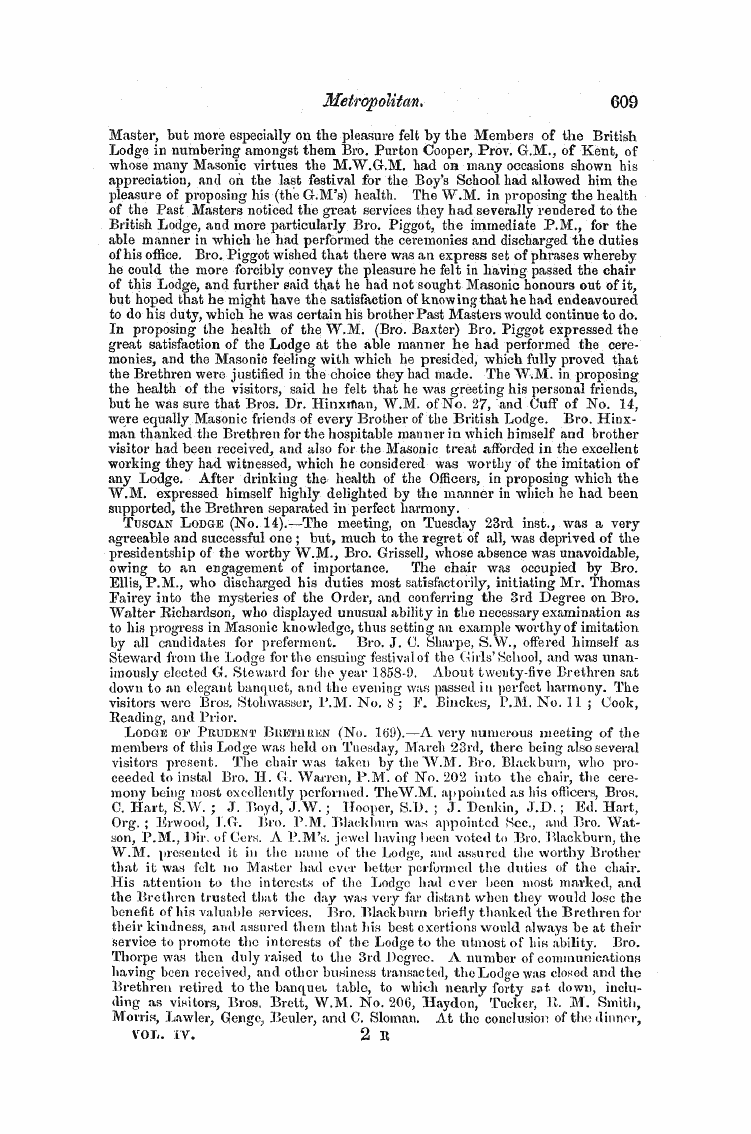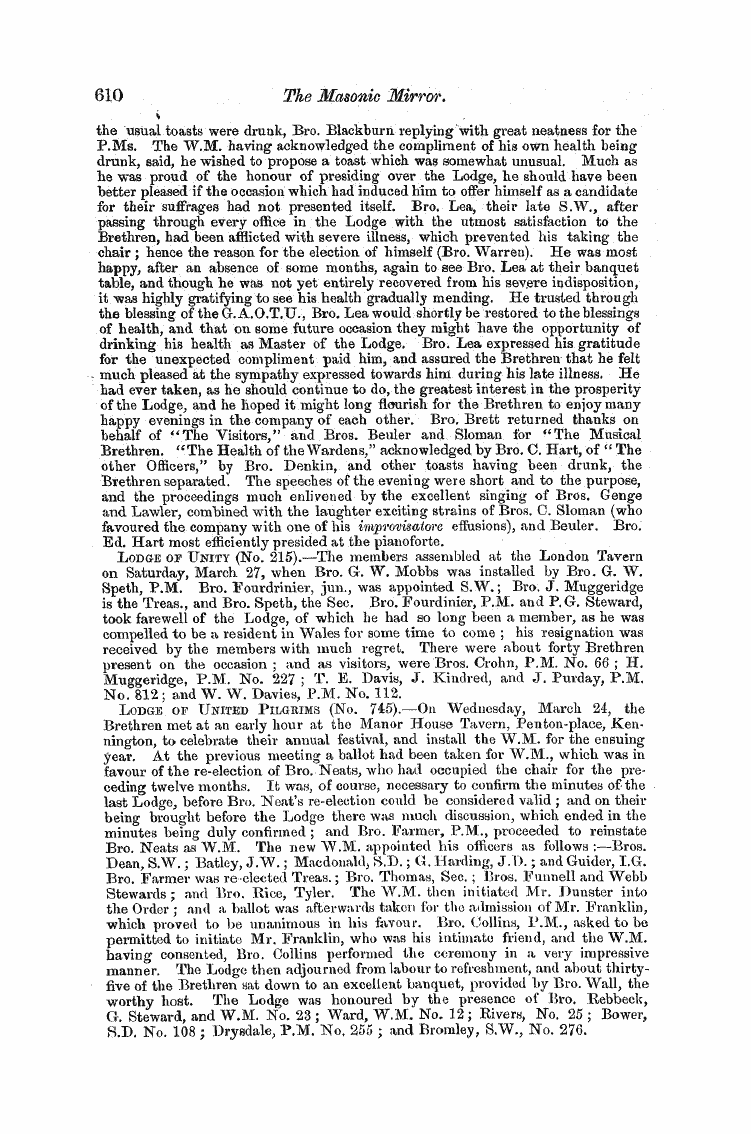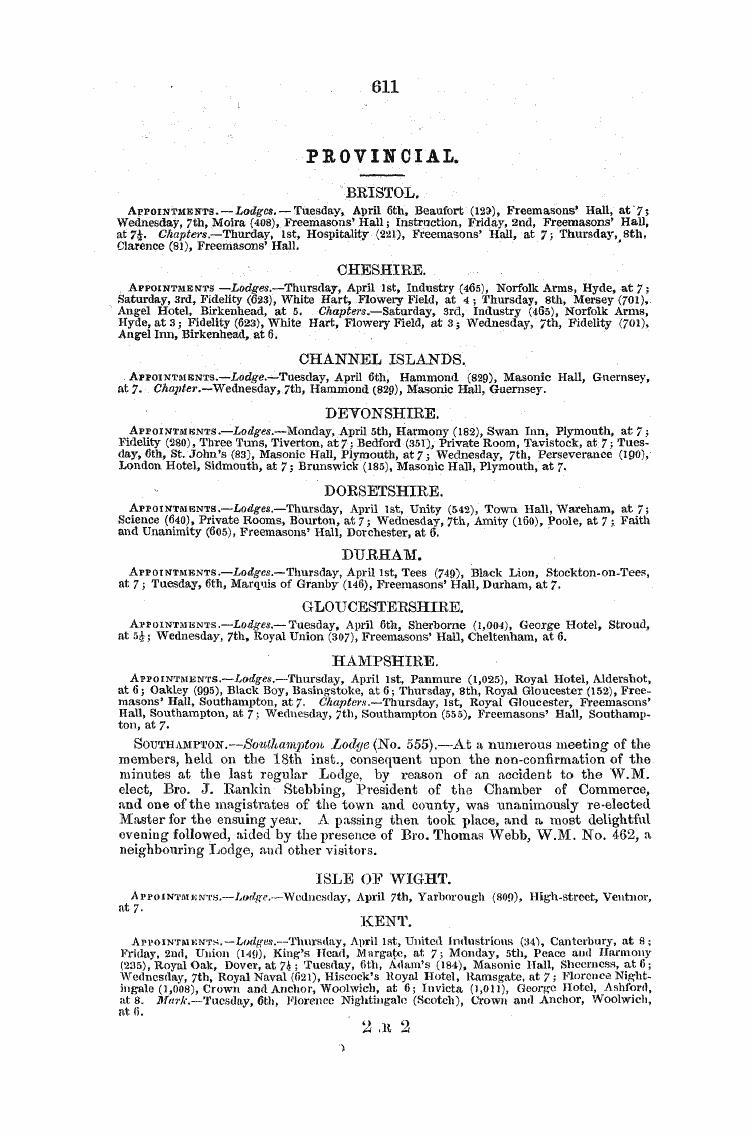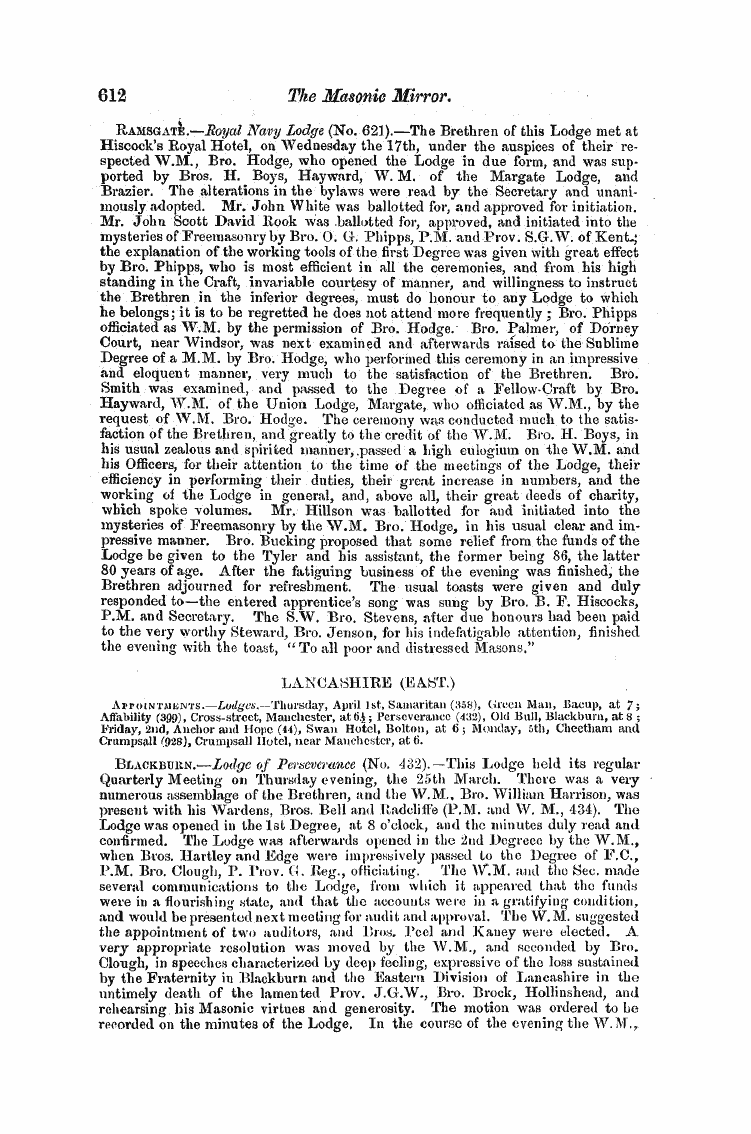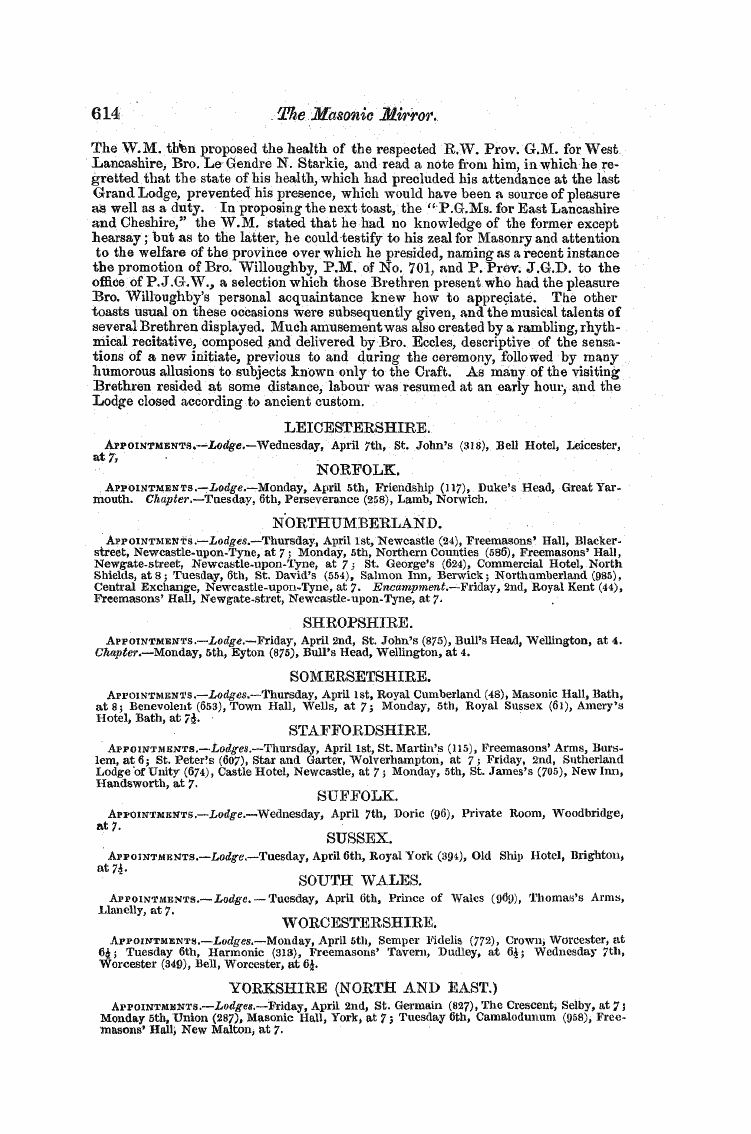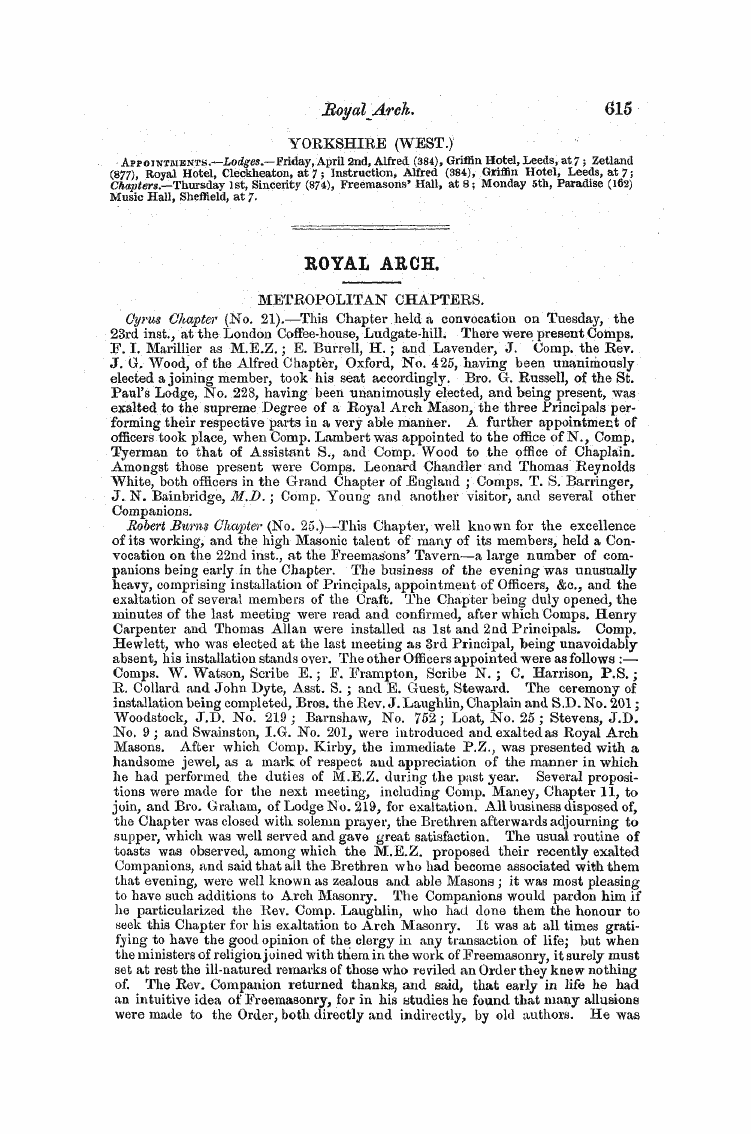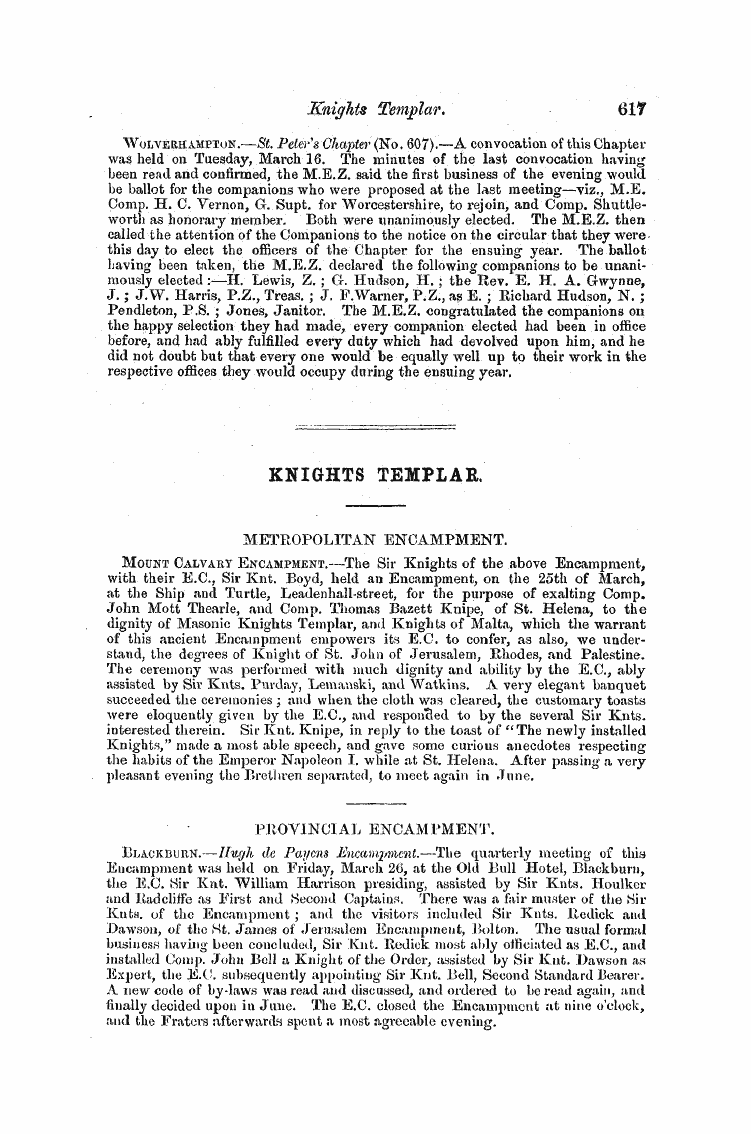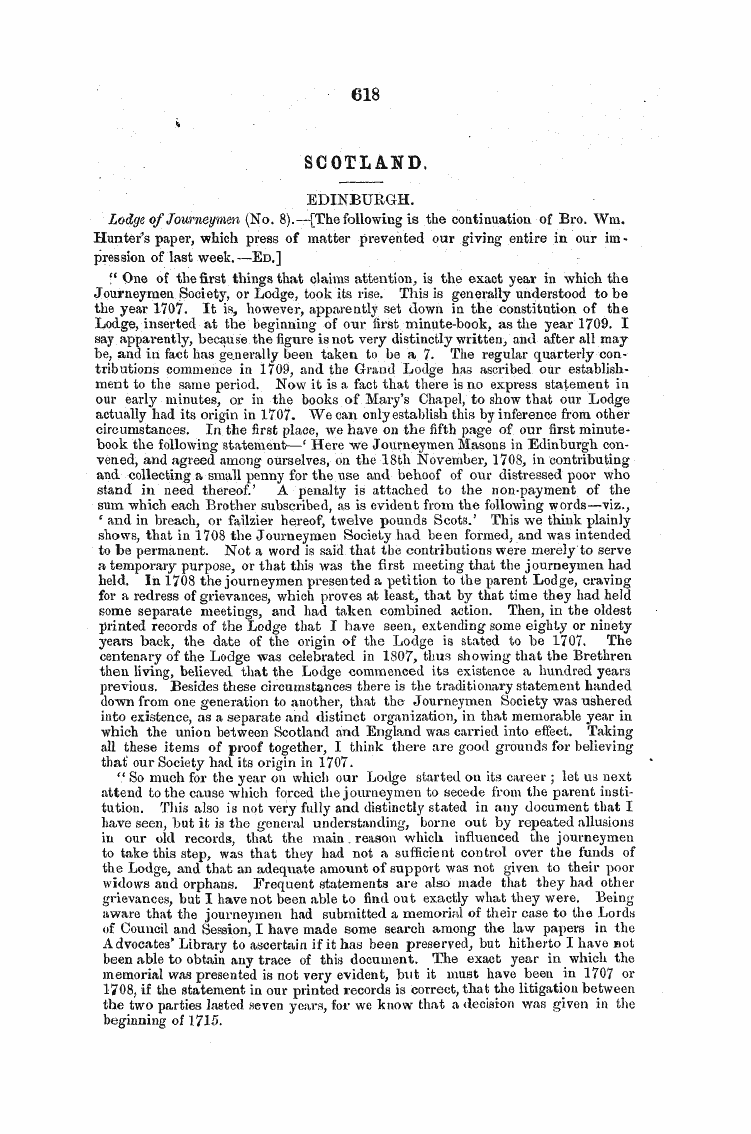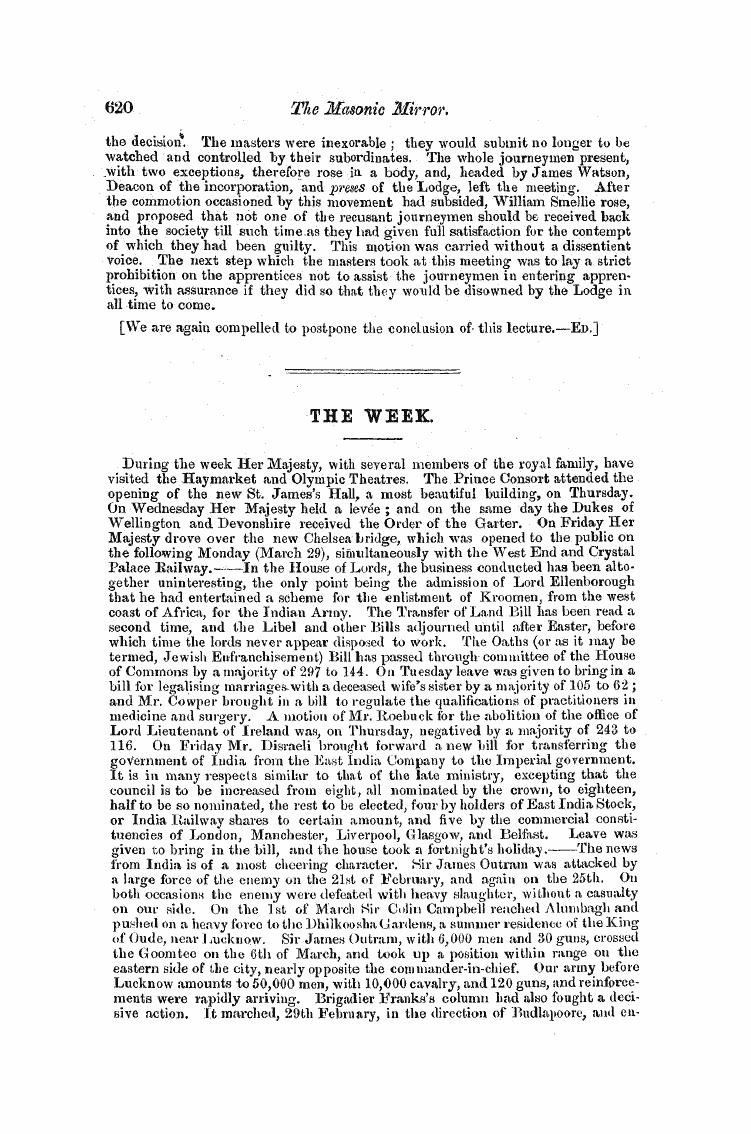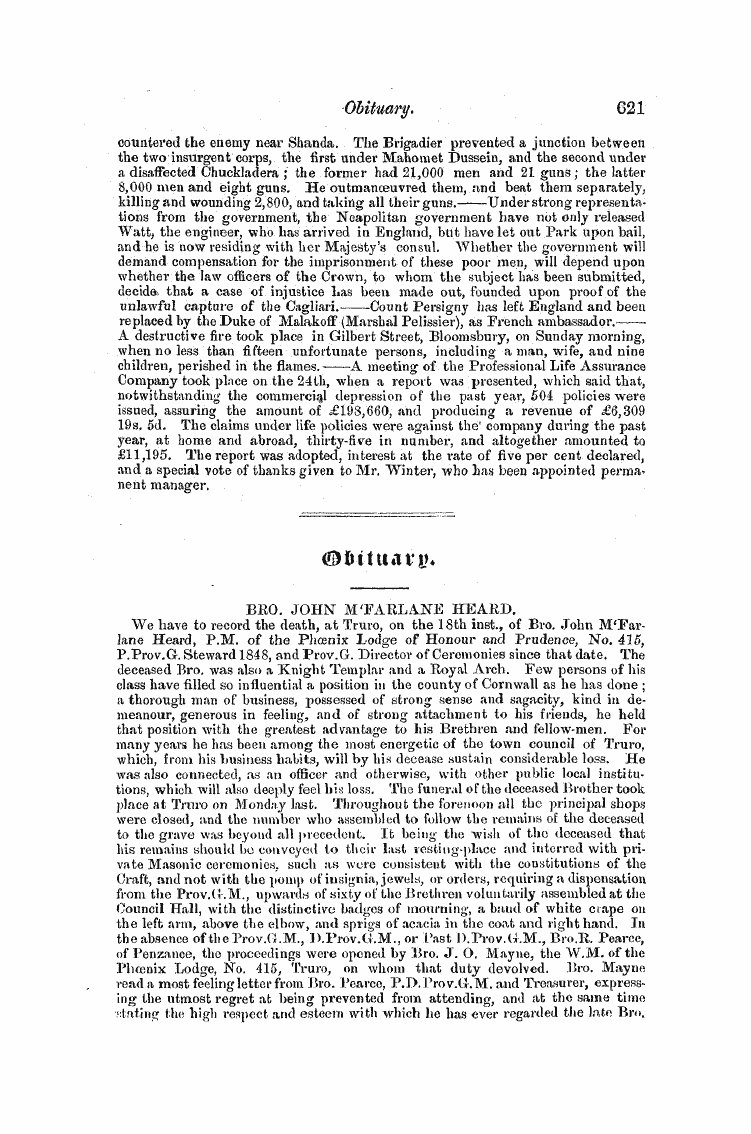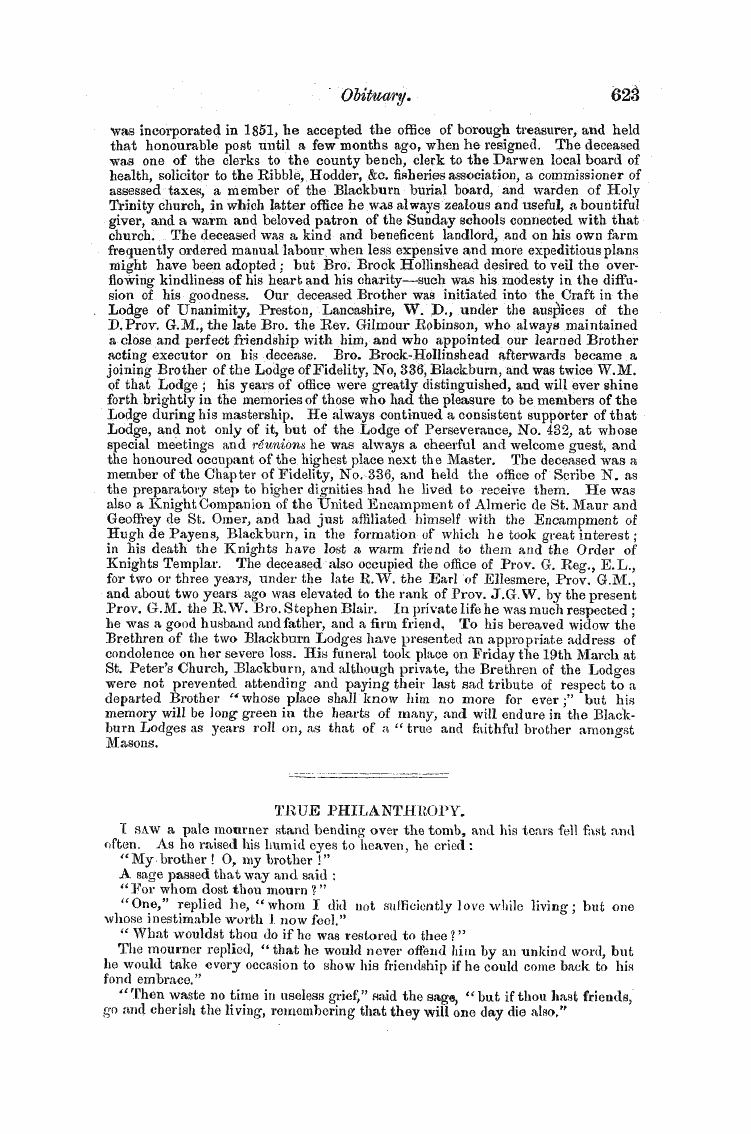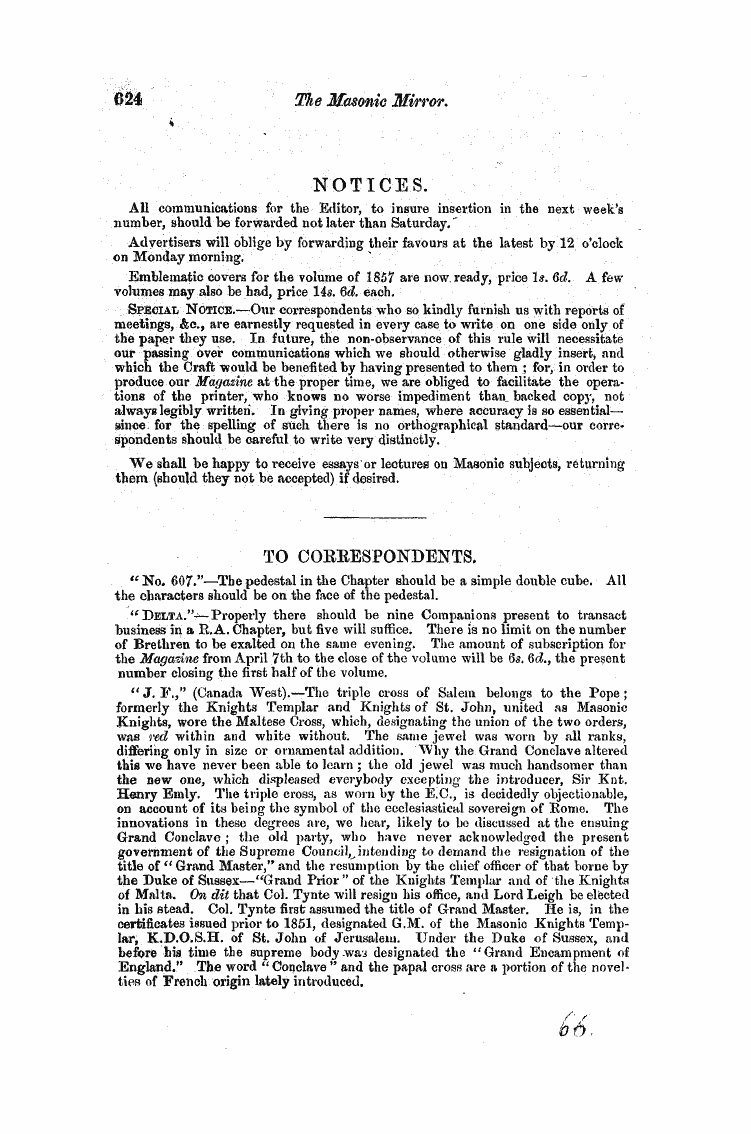-
Articles/Ads
Article MAS ONIC L E GENDS. ← Page 2 of 6 →
Note: This text has been automatically extracted via Optical Character Recognition (OCR) software.
Mas Onic L E Gends.
at different periods of the world ' s history 3 possess a eoUwiporaneousness which is immortal ! Holy truths inculcated a thousand j ^ ears ago , are the self same truths we venerate to-day ; " for them there is no longer time or place . 'V The fellowship of the true Israel of God is the same yesterday , to-day , and for ever .
Whatever many Masons may think of ancient mythology , * as it is generally termed , from it we have inherited some of our principal allegories and symbols . A legend of high importance was communicated in the mysteries of Adonis ( or Dionysus ) , cultivated by the sodalities of scientific artisans generally known as the Dionysian architects of Asia Minor , which flourished in Syria , Persia , and India , f and from thence extended to Greece and Rome . The legend we refer to , was embraced by Solomon , when he introduced
the holy mysteries among the artists and masons engaged in erecting the sacred structures he was divinely inspired to build to the honour and glory of the great Jehovah . He received the legend from Hiram , king of Tyre , who must have been the Grand Master of these Dionysiacs , at least throughout Phoenicia . Two profound Masonic antiquaries £ have expressed their conviction , that Solomon took advantage of several real occurrences which transpired in Jerusalem while his famous temple was being erected , and substituted these for
analogous occurrences commemorated in the Dionysian legend . Both legends taught the same truth , involving the interests of mortal man beyond the grave . This substitution could only have taken place about the time of the completion of the temple , and must have signalized the teachings of " the wisest man / 5 when he charged the architects , on their departure from the holy city , after they had completed their labours in it .
We think we should be culpable were we to omit an allusion to the three Grand Architects of the Holy Temple , conveyed in the old Masonic metrical toast , commencing with the words" To him who all things understood ; To him who furnished stone and wood ; To him who nobly shed his blood In doing of his duty . *
" I would here say much more , were I not afraid of being heard by those who are uninitiated ; because men are apt to deride what they do not understand ; and the ignorant , not being aware of the
* We must be permitted to record the opinion of a learned professor , not a member of our Order , Taylor Lewis , on the subject of mythology . " A myth /' says he , "is not a fable , neither is mythology the history of fables . This branch of knowledge , extravagant and unsatisfactory as it may seem to some , does actually offer move important truth to the contemplative mind , than is often furnished by the most accurate annals belonging to later periods of national life . " The Greek word for fable is jivOoq , angtice myth , which means nothing more than a discourse , by way of eminence , unassociated with any idea of fiction . + ¦ Lawrie . J Archdeacon Mant and R . W . J 3 ro . Thomas Pryer . F . S . A .
Note: This text has been automatically extracted via Optical Character Recognition (OCR) software.
Mas Onic L E Gends.
at different periods of the world ' s history 3 possess a eoUwiporaneousness which is immortal ! Holy truths inculcated a thousand j ^ ears ago , are the self same truths we venerate to-day ; " for them there is no longer time or place . 'V The fellowship of the true Israel of God is the same yesterday , to-day , and for ever .
Whatever many Masons may think of ancient mythology , * as it is generally termed , from it we have inherited some of our principal allegories and symbols . A legend of high importance was communicated in the mysteries of Adonis ( or Dionysus ) , cultivated by the sodalities of scientific artisans generally known as the Dionysian architects of Asia Minor , which flourished in Syria , Persia , and India , f and from thence extended to Greece and Rome . The legend we refer to , was embraced by Solomon , when he introduced
the holy mysteries among the artists and masons engaged in erecting the sacred structures he was divinely inspired to build to the honour and glory of the great Jehovah . He received the legend from Hiram , king of Tyre , who must have been the Grand Master of these Dionysiacs , at least throughout Phoenicia . Two profound Masonic antiquaries £ have expressed their conviction , that Solomon took advantage of several real occurrences which transpired in Jerusalem while his famous temple was being erected , and substituted these for
analogous occurrences commemorated in the Dionysian legend . Both legends taught the same truth , involving the interests of mortal man beyond the grave . This substitution could only have taken place about the time of the completion of the temple , and must have signalized the teachings of " the wisest man / 5 when he charged the architects , on their departure from the holy city , after they had completed their labours in it .
We think we should be culpable were we to omit an allusion to the three Grand Architects of the Holy Temple , conveyed in the old Masonic metrical toast , commencing with the words" To him who all things understood ; To him who furnished stone and wood ; To him who nobly shed his blood In doing of his duty . *
" I would here say much more , were I not afraid of being heard by those who are uninitiated ; because men are apt to deride what they do not understand ; and the ignorant , not being aware of the
* We must be permitted to record the opinion of a learned professor , not a member of our Order , Taylor Lewis , on the subject of mythology . " A myth /' says he , "is not a fable , neither is mythology the history of fables . This branch of knowledge , extravagant and unsatisfactory as it may seem to some , does actually offer move important truth to the contemplative mind , than is often furnished by the most accurate annals belonging to later periods of national life . " The Greek word for fable is jivOoq , angtice myth , which means nothing more than a discourse , by way of eminence , unassociated with any idea of fiction . + ¦ Lawrie . J Archdeacon Mant and R . W . J 3 ro . Thomas Pryer . F . S . A .

































































































































































































